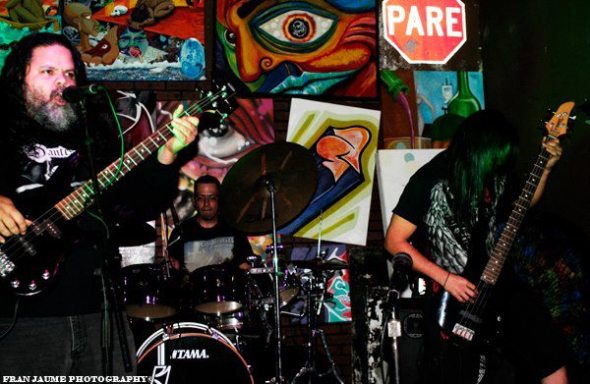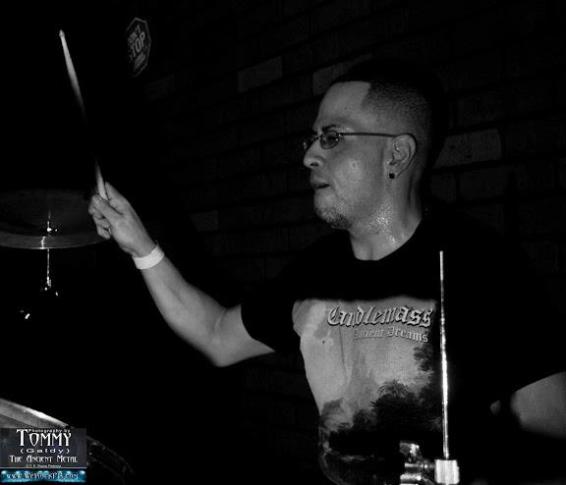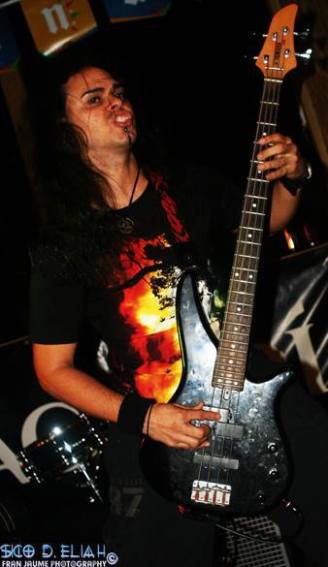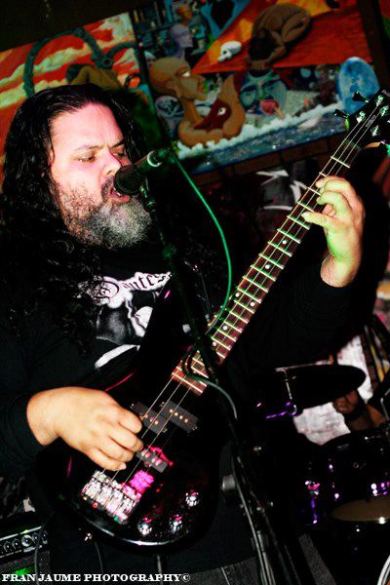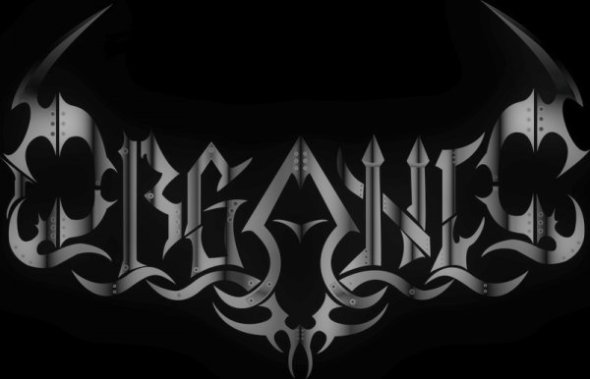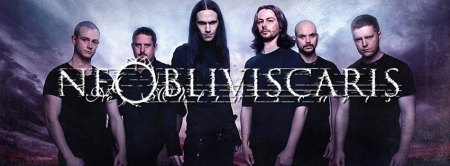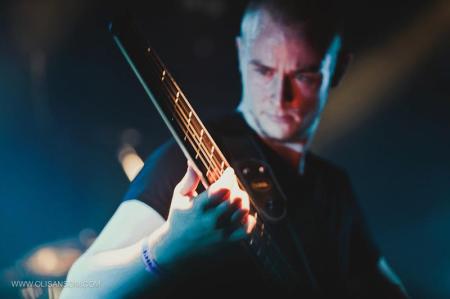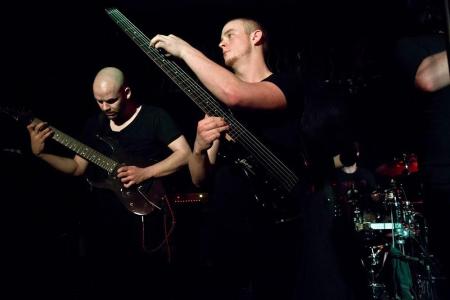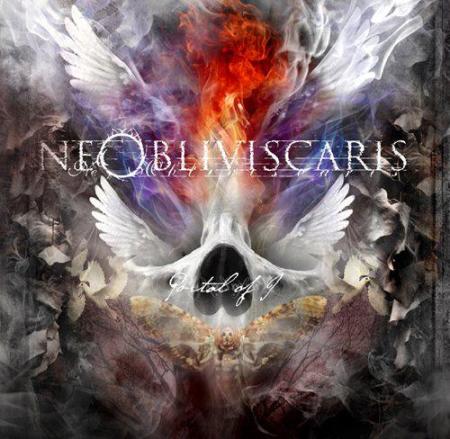This interview is available in English. Click here for the English version.
Formar parte de una banda de heavy metal extremo nunca es fácil. Es casi una garantía permanente de que nunca vas a alcanzar gran popularidad, y mantener todos los integrantes a bordo solo por el amor a la música es un reto grande. Aún dentro del mundo del metal, los gustos del público fluctúan de una dirección a la otra según pasa el tiempo. A pesar de todo eso, el metal ha sobrevivido cuatro décadas. Varios de los originadores del género se han mantenido fuertes: Judas Priest, Black Sabbath, y Iron Maiden, para nombrar sólo tres ejemplos sobresalientes. Pero estas bandas no son de metal extremo, y son gigantes que venden muchísimo, tanto de su música como en mercancía. Las bandas de metal extremo, especialmente aquellas laborando arduamente en escenas locales, no disfrutan de esas ventajas.
Organic, previamente conocidos como Organic Infest, es una banda cuyos orígenes se remontan al 1988. Su estilo es uno que mezcla las influencias del death, thrash, y doom metal, entre otros, lo cual resulta en música que le puede agradar a una gran variedad de oyentes. Combinan agresión con melodía, evitando así la monotonía de la que sufren muchas bandas de metal extremo hoy día. Aún cuando estás oyendo melodías, la música te está golpeando el cráneo sin misericordia alguna.
Ellos son de Puerto Rico, al igual que este servidor. Por lo tanto, yo he tenido experienca directa de la escena de la que ellos forman parte. Además de ser una escena especialmente difícil, Organic ha tomado unas decisiones muy valientes. La principal de éstas fue su reciente decisión de seguir adelante sin guitarra en la banda, optando por utilizar dos bajos en su lugar. Recuerde que ésta es una banda de thrash/death metal, géneros en los cuales la guitarra se considera mayormente como el instrumento principal. El cantante y bajista José, mejor conocido como Chewy se equipó con un bajo piccolo, y añadieron un segundo bajista, Tony, para mantener el retumbo profundo del bajo regular (el baterista Juan complete el trío.) Esta decisión les trajo crítica y escepticismo, pero ellos siguieron adelante, tornando a la mayoría de los críticos y escépticos en creyentes cuando escucharon los sorprendentes resultados. Eso, amigos, conlleva cojones.
Fotos por Fran Jaume Photography, excepto la foto de Juan (baterista) por Tommy Galdy Photography
(Chewy contestó todas las preguntas, excepto donde se indique lo contrario.)
¿Qué fue lo que inspiró sus comienzos en la música?
Tony: Yo siempre he admirado el arte y he deseado expresarme a través de la misma. Después de tratar varios tipos de arte, la música se convirtió en mi favorita porque es la que me permite expresarme completamente. ¡La música no tiene límites!
Juan: Mi deseo de tocar la batería surgió cuando comencé a escuchar una estación de radio local (Alfa Rock) a mediados de los ochenta. Bandas como Rush, Saga, Triumph y otras de esa época.
Chewy: Yo crecí escuchando bandas como Black Sabbath, Led Zeppelin y Judas Priest. Luego me adentré en la música de W.A.S.P., Iron Maiden y Savatage. Pero lo que me hizo decidir que quería tocar el bajo fue cuando descubrí mi banda favorita y mi mayor influencia: ¡Coroner!
Cuéntame sobre los orígenes de la banda.
La banda comenzó en 1988 con el nombre Black Cross, y los integrantes eran Pedro (batería), Freddy (guitarra), y yo Chewy (bajo y voz) y era mayormente heavy metal. Ese mismo año cambiamos el nombre a Darkken y estábamos tocando canciones de D.R.I., Anthrax y S.O.D., porque esas eran las bandas que el guitarrista favorecía.
Nos mantuvimos así como hasta el 1990 cuando yo estaba escuchando bandas más pesadas como Possessed, Pestilence y Death, y el guitarrista se interesó en ese estilo y comenzamos a cambiar la dirección de la banda. El baterista (Pedro) se retiró de la banda porque a él no le gustaba ese estilo. A principios del 1991 conocimos a Juan el cual se unió a la banda. Luego cambiamos de nombre otra vez a Concealed Damage. Esto no duró mucho (solo una presentación) y entonces un día se me ocurrió el nombre Organic Infest, el cual le gustó a todos. Ese nombre se mantuvo hasta el 2005 cuando Freddy (guitarra) dejó el grupo. Entonces Juan y yo decidimos acortar el number a sólo Organic. Estuvimos sin guitarrista como por un año. En el 2006 adquirimos un gran guitarrista, Ed Díaz, pero solo duró un año. En el 2007 estábamos buscando un reemplazo, pero nos dimos por vencidos debido a la frustración constante con los guitarristas. A fines del 2007, Juan me dijo en un ensayo, “Mano, ponle distorsión al bajo y toquemos.” Comenzó como una broma, pero luego decidimos hacerlo. Comenzamos con la idea del bajo piccolo y añadimos un cantante (Junito) y Tony en el bajo, y tocamos así hasta el 2010 cuando Junito dejó la banda. Desde ese entonces estamos con los integrantes actuales.
¿Qué les dió la idea de eliminar la guitarra y utilizar dos bajos en su lugar?
La idea de los dos bajos vino como una solución a nuestros problemas y malas situaciones con los guitarristas. Queríamos tocar, y estábamos desesperados. Así que Juan me dio la idea y luego escuché a un bajista llamado Brian Bromberg, quien hace eso en uno de sus discos titulado Metal, y el tipo es simplemente asombroso. Así que me dije a mí mismo, si él puede hacer eso un estilo de rock/fusión, yo lo puedo hacer en metal. Así fue que nació la idea de usar el bajo piccolo.
¿Este nuevo concepto tomó forma rápidamente, o hizo falta mucha experimentación?
Tomó mucha experimentación. Pasé por mucho para finalmente lograr el sonido que quería obtener del bajo piccolo. Muchas distorsiones, ajustes y ecualización. Pero ahora finalmente tengo el sonido que quería luego de experimentar por tanto tiempo. También tuve que hacer cambios en mi técnica de tocar en general, especialmente en las partes tocadas con “muting.”
¿El hecho de no tener guitarra impactó su método de escribir canciones?
Realmente, no. Yo siempre he compuesto música en el bajo, así que el proceso se mantuvo igual. Lo único que cambió es que ahora toco líneas soloísticas como un guitarrista lo haría normalmente.
Cómo reaccionaron sus seguidores y la escena en general a su nuevo nombre y alineación de integrantes?
Hubo gente que decía, “¿Freddy dejó la banda!? Ese será su fin.” ¡Estaban tan equivocados! Creían que Freddy lo hacía todo y era el “cerebro” de la banda – de nuevo, estaban equivocados. Yo escribía todas las letras, nombré la banda, creé todo el concepto, escribía la mitad de la música, e incluso hacía los arreglos de algunas canciones escritas por él. Él era un buen guitarrista de death metal, y un buen amigo, pero no era el cerebro en la banda. La prueba está en el hecho de que ahora tenemos mejor música. Por supuesto, siempre están los fieles que se alegraron de vernos continuar y crecer como banda. Acerca del nombre, no creo que haya sido un gran salto, porque ya muchos se estaban refiriendo a la banda como Organic nada más. Era sólo algo que queríamos hacer, ya que nuestras letras no eran sangrientas como antes.
Algunos podrían decir que el nombre Organic, comparado con su nombre anterior Organic Infest, no suena muy metálico. ¿Que piensan al respecto?
“Organic” es todo lo que se relaciona a un organismo, seres vivientes, vida y muerte. ¿Que podría ser mas metálico que la vida y la muerte? Organic es un término que es muy amplio y nos permite escribir sobre cualquier tema. Mientras que el nombre Organic Infest sugiere un estilo más al estilo death metal con letras sangrientas, el nombre Organic nos provee más libertad en las letras y también en la música, la cual ahora mismo no es death metal, si no una mezcla de todas nuestras influencias, las cuales se extienden a todos los estilos dentro del género (power, thrash, death, black, doom, etc.) y son parte de nuestro estilo original.
Tony – Bajo
¿Cuál es el proceso de composición en la banda, y como arreglan las partes de los bajos?
El proceso es diferente para cada canción, pero mayormente se trabaja en sesiones de “jammeo.” A veces escribo una letra completa con versos, coros, puentes, y también concibo el patrón vocal, y luego añadimos la música. A veces escribimos la música primero, las estructuras básicas y amoldamos todo hasta que todos estemos satisfechos, y luego añado la letra. Acerca de las partes del bajo, usualmente yo concibo las partes y luego Tony le da su propio toque y estilo. Con el bajo piccolo toco como si fuera una guitarra, porque esa es la función que desempeña en el contexto de la música.
¿Qué le dirian a alguien que se queje diciendo que su bajo piccolo suena igual que una guitarra, y que por qué entonces no utilizar una guitarra en vez de un bajo?
Bueno, hemos tenido tantos contratiempos tratando de mantener un guitarrista en la banda que decidimos hacer otra cosa. Además, yo no toco guitarra, yo soy bajista, siempre lo he sido, y siempre lo seré. Si hago que el piccolo suene como guitarra, pues esa era la intención – tener un sonido de guitarra sin seguir la tortura de conseguir un guitarrista. Además, algunos son puristas y nunca aceptarían lo que estamos haciendo, y a nosotros nos da lo mismo. A los innovadores siempre los han tratado como locos y muchas otras cosas hasta que otras personas comienzan a seguirlos. ¿No es así que el metal se convirtió en la gran música que es? Al principio la música extrema se consideraba que era solo ruido, y ahora muchos guitarristas, bajista y bateristas están siendo reconocidos como grandes músicos. Es sólo un proceso de adaptación. Lo más importante es que nos gusta lo que estamos haciendo, y cómo lo estamos haciendo. Ante los cambios que hicimos, muchos me dijeron, “Chewy, lo que estás haciendo es un gran error. No va a llegar a nada.” Esos son los mismos que ahora nos siguen, vienen a nuestras presentaciones y dicen, “Wow, lo que ustedes están haciendo es impresionante.”
Chewy, como desarrollaste tu sonido vocal?
Cuando yo empecé, todos los “gruñientes” sonaban diferente, era algo nuevo y tomé como influencia lo que me gustaba de cada uno. Vocalistas como Chris Barnes, Chuck Schuldiner, Frank Mullen, David Vincent, Glen Benton, John Tardy, etc., estaban gruñiendo pero sonaban diferente el uno del otro. Nunca me han gustado las modas, así que cuando los gruñidos era la orden del día yo hice lo opuesto utilizando un estilo vocal más agudo como en el black metal, y cuando ese estilo se puso de moda, volví a los gruñidos otra vez. Principalmente lo que hago es cantar como la parte de la canción lo exige. Es algo que hago a base de cómo se siente, al menos en las grabaciones porque en vivo yo uso varias voces diferentes ara darle textura y variedad a la música.
Chewy – El gigante que toca el bajo pequeño!
Tú desempeñaste una muy buena voz limpia en la canción “The Deathwish.” ¿Tienes planes de incorporar más de ese estilo, o va a ser solo “si la canción lo necesita?”
Quizás incorpore más voz limpia en el futuro, pero sólo en canciones que tengan esa onda. Como dijiste, “si la canción lo necesita.” Además de Coroner, que es mi mayor influencia, las otras dos son King Diamond y Candlemass, que utilizan voz limpia. Incorporar eso estaría bueno. ¡Un reto, pero bueno!
¿Cómo ha evolucionado la escena en Puerto Rico desde sus comienzos hasta el presente?
Chewy: La escena en Puerto Rico ha sido una muy diversa, controversial, y difícil. Ha habido tiempos de crecimiento, pero en otras ocasiones se estanca fuertemente. Cuando comenzamos 22 años atrás, era muy difícil grabar y promover la banda. Todo se hacía por correo y por intercambio de cintas de grabación. Ahora es todo más fácil para las bandas grabar y promover su música por la internet, y aún así veo muchas bandas quejándose. Ahora hay promotores que traen bandas internacionales y todo eo, pero para las bandas locales como nosotros es más difícil tocar porque casi no hay sitios disponibles para tocar.
Juan: Siento que aún con todo el tiempo que ha pasado nuestra escena no ha evolucionado mucho. A veces se siente como que estamos resbalando, quedándonos en el mismo sitio una y otra vez.
Tony: Estoy de acuerdo que nuestra escena podría ser mucho mejor de lo que es. Si hubiera más cooperación entre las bandas en vez de ser una competencia para ver quién es el mejor, nuestra escena sería una muy buena.
¿Qué planes futuros tiene Organic?
Organic está ahora más fuerte que nunca, muy enfocados, y muchas cosas buenas están por venir para la banda. Nueva música, nuevas grabaciones, y muchas otras cosas buenas para promover la banda y darle una oportunidad de escucharnos a los que no nos han escuchado.
¡Héctor, gracias por la entrevista y sigue tu excelente trabajo, hermano metal! Saludos!
Visite a Organic en Facebook AQUÍ
